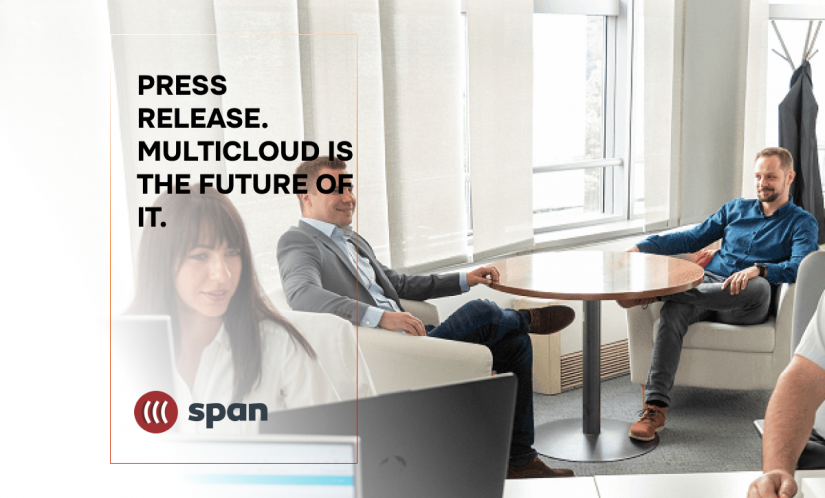
Technology transformation in enterprise organizations is paramount to moving the business forward. Yet, while shifting your workloads to a hybrid, multicloud infrastructure provides competitive advantages, it can also increase IT complexity. That’s why controlling the risk without sacrificing agility and innovation is of greatest priority for many IT leaders. Just consider that 98% of all businesses committed to adopting multicloud architectures by 2021, and only 38% have the processes in place to manage a hybrid IT environment.
What is Multicloud Management?
Multicloud management is a set of tools and procedures that enables businesses to observe and secure applications and workloads across multiple public clouds. Ideally, a multicloud management solution allows IT teams to manage multiple clouds from a single interface and supports multiple public cloud platforms, such as AWS and Azure.
Today, most organizations use more than one public cloud service provider. This reduces dependency on any one vendor, allows the organization to request and utilise relative strengths of every provider, and enables optimization of cloud usage and costs. However, the more cloud providers a company uses, the more complex the task of managing them becomes. Multi-cloud management strategies and solutions seek to simplify and streamline management by providing a centralized management platform that integrates with other tools.
Multicloud management motivators
Although the central premise is that organizations want to avoid vendor lock-in as the main driver for taking a multicloud journey, we can highlight three equivalent multicloud motivators:
- Prime cloud providers. Instead of bending your processes to accommodate provider’s requirements, you can find services in different providers' portfolios that are custom-tailored for different parts of your business.
- Competitive pricing and vendor lock-in. Ensure the freedom of comparing different providers and securing best available rates. With multicloud architecture you can avoid vendor lock-in and get the most value out of your partnership with any cloud service provider.
- Resilience and security. A disaster recovery strategy with a multicloud component provides much-needed level of reliability and security.
To utilize various technical and business-related benefits of a multicloud environment, you must manage your multicloud posture according to best practices, including relevant tools and onboarding a trusted partner that can provide the needed expertise, automation, and control.
Multicloud management is a must-have component if you are utilizing resources from more than one cloud provider. It ensures that you can monitor and manage your costs, provision and orchestrate needed services, manage IT inventories, define security posture across clouds, and govern your overall cloud environment.
“Multicloud is the future of IT" is the statement we can often hear today, but is that so?
In a recent Gartner survey of public cloud users, 81% of respondents said they are working with two or more public cloud providers. As cloud environments and architecture become more complex, solutions designed to help enterprises manage their cloud infrastructure ensure they can address any problem they face.
Challenges of multicloud management
Even multicloud management has undeniable benefits, it is very challenging to implement. Here are several potential obstacles to implementing a management solution:
Increased complexity: this is the most common challenge of a multicloud approach and one that multicloud management is meant to handle. Multicloud environments are complex, and it may be difficult to get a grip on their complexity and implement an efficient management solution.
Integration between different software environments: for effective multicloud management, businesses must develop applications that will move across environments without integration issues, which may be a difficult task considering the differences between cloud platforms. As mentioned before, containers are a brand-new technology designed to bypass this challenge, providing easier portability between different public cloud providers.
Multicloud with Span
Span specialises in providing cloud-related business consulting services across two major areas of expertise - multicloud solutions and the adoption of cloud tools and technologies. We ensure our customers are well-prepared for their digital cloud journey by facilitating and optimizing provider-independent analysis, strategic planning, and cloud adoption.
Our competitive edge is powered by our great experience in mapping and matching business needs with cloud platforms’ technical capabilities. Our in-depth, comprehensive business and strategic methodology greatly supplements and enhances Span’s portfolio of cloud infrastructure, engineering services, and solutions.
Contact: Serghei Smigaliov, Country Manager Span Moldova
Phone: +373 79 222 555
E-mail: serghei.smigaliov@span.eu







